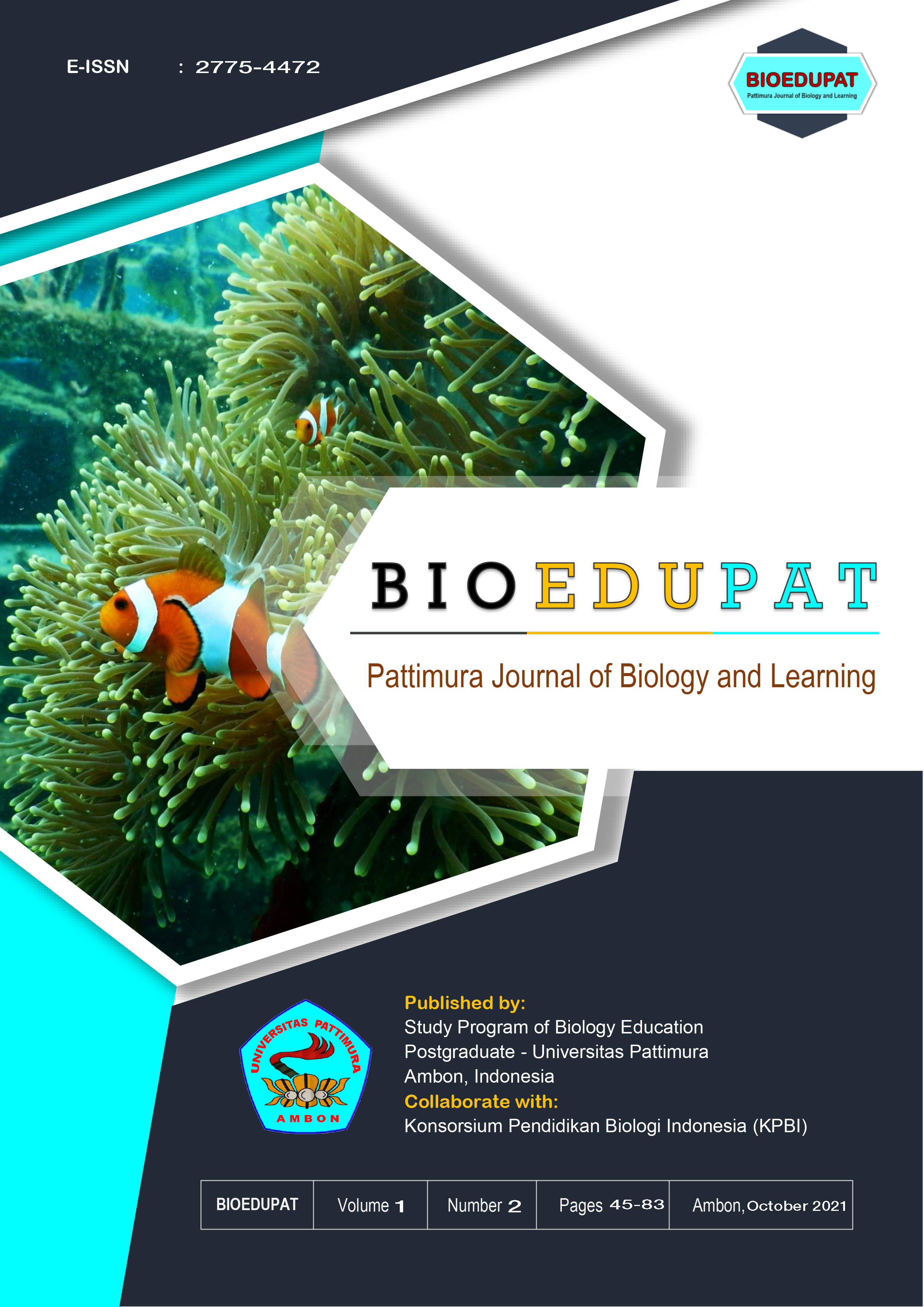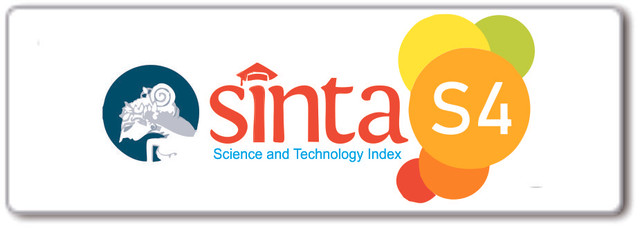The effect of use environmental based practicum methods on students' cognitive, interest, and effective learning outcomes at public school 11 Southeast Maluku and Anugerah Christian High School
Abstract
The function of national education is to shape the character and civilization of the nation, while developing the potential of students to be faithful, devoted, have noble character, be capable, creative, independent, democratic, and responsible. This study was to determine whether there is an effect of using environmental-based practicum methods on the identification of the types of protists on cognitive learning outcomes, interest in learning, and students' affective values. The method used in this research is quasi-experimental. (1) The effect of cognitive learning outcomes, the value of t count is greater than t table (27.793 > 2,000), (21.145 > 2.001). (2) The effect of interest in learning, the value of t count is greater than the value of t table (42.268 > 2,000), (36.030 > 2.001). (3) The effect of students' affective scores: the t-count value is greater than the t-table value (20,044 > 2,000), (30,734 > 2,001). There is a significant effect of using environmental-based practicum methods on cognitive learning outcomes, interest in learning, and affective values
Downloads
Copyright (c) 2021 Fanny Tuakora, Merry Pattipeilohy, John Fritzgal Rehena

This work is licensed under a Creative Commons Attribution-NonCommercial-ShareAlike 4.0 International License.
Authors who publish with BIOEDUPAT: Pattimura Journal of Biology and Learning agree to the following terms:
- Authors retain copyright and grant the journal right of first publication with the work simultaneously licensed under a Creative Commons Attribution License (CC BY-NC-SA 4.0) that allows others to share the work with an acknowledgment of the work's authorship and initial publication in this journal.
- Authors are able to enter into separate, additional contractual arrangements for the non-exclusive distribution of the journal's published version of the work (e.g., post it to an institutional repository or publish it in a book), with an acknowledgment of its initial publication in this journal.
- Authors are permitted and encouraged to post their work online (e.g., in institutional repositories or on their website) prior to and during the submission process, as it can lead to productive exchanges, as well as earlier and greater citation of published work.









 This work is licensed under a
This work is licensed under a 